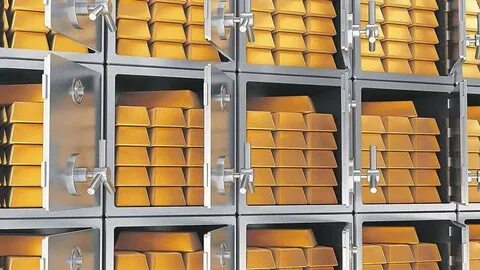Metal detectors are a popular tool used by treasure hunters and archaeologists to uncover hidden treasures buried beneath the surface. The latest advancements in metal detector technology have made it easier than ever to locate valuable artifacts and precious metals. With the use of state-of-the-art metal detectors, enthusiasts can embark on thrilling expeditions to uncover hidden treasures in various locations. In this article, we will explore the latest advancements in metal detector technology and how they can help individuals uncover hidden treasures.
Metal detectors have become increasingly advanced in recent years, allowing enthusiasts to uncover hidden treasures with greater accuracy and efficiency. The latest models of metal detectors are equipped with cutting-edge technology, providing higher sensitivity to detect metals deep underground. Some metal detectors also come with advanced features such as discrimination settings to filter out unwanted metals and ground balance control to adjust for different soil conditions.
These advancements in metal detector technology have made it easier for hobbyists, treasure hunters, and archeologists to unearth valuable artifacts, coins, jewelry, and historical relics. Whether you’re exploring beaches, parks, or ancient sites, the latest metal detectors offer a wide range of settings and customization options to enhance your treasure hunting experience.
In addition, the lightweight and ergonomic designs of modern metal detectors make them easy to use for prolonged periods without causing fatigue. Some models also offer waterproof capabilities, allowing users to search for treasures in wet or submerged conditions.
Overall, the latest metal detectors provide unparalleled opportunities for enthusiasts to explore and uncover hidden treasures with precision and ease. Whether you’re a beginner or a seasoned treasure hunter, there’s a wide selection of advanced metal detectors available to suit your specific needs and preferences.
Best Metal Detectors for Beginners: A Buying Guide

Best Metal Detectors for Beginners: A Buying Guide is a comprehensive resource that offers information on the top metal detectors suitable for beginners. The guide provides a detailed analysis of each metal detector’s features, including its sensitivity, depth detection, discrimination modes, and other essential functions. It also discusses the pros and cons of each model and provides recommendations based on user experience and expert reviews. Additionally, the guide offers tips on how to choose the right metal detector for your needs, as well as maintenance and care instructions to ensure optimal performance. Overall, this buying guide is a valuable tool for anyone looking to purchase their first metal detector.
Top 10 Metal Detectors for Gold Prospecting

1. Minelab GPZ 7000: This detector is known for its depth and sensitivity, making it one of the best for finding small gold nuggets.
2. Garrett AT Gold: This waterproof detector is designed specifically for gold prospecting and is well-suited for hunting in harsh environments.
3. Fisher Gold Bug Pro: This high-frequency detector excels at finding small gold nuggets and is highly sensitive to even the smallest traces of gold.
4. Whites Goldmaster GMT: A favorite among prospectors, this detector offers automatic ground balance and high sensitivity to gold nuggets.
5. Minelab SDC 2300: This compact detector is ideal for shallow water and the most difficult terrains, making it perfect for gold prospecting.
6. Garrett ATX: Known for its ability to find tiny gold nuggets in mineralized soil, this detector is highly durable and can withstand tough conditions.
7. Nokta Makro Gold Kruzer: This lightweight and waterproof detector offers outstanding performance in gold fields, making it a popular choice for prospectors.
8. Fisher Gold Bug 2: A top choice for prospectors, this high-performance detector is renowned for its sensitivity to small gold nuggets.
9. Minelab Gold Monster 1000: With its easy-to-use controls and ability to detect the smallest gold nuggets, this detector is a favorite among beginners and experienced prospectors alike.
10. Tesoro Lobo SuperTRAQ: This high-performance, high-frequency detector offers exceptional sensitivity to gold and is well-suited for finding small nuggets in highly mineralized soil.
The Evolution of Metal Detectors: From Past to Present

Metal detectors have come a long way since their inception. The first metal detectors were developed in the late 19th century and were mainly used for locating and removing buried metal objects such as landmines and unexploded ordnance. These early models were large, cumbersome, and mainly used for military and industrial purposes.
In the 1920s, the first handheld metal detectors were invented and used for the detection of metal objects on people, such as weapons and contraband. These early models were rudimentary and relied on analog technology.
Throughout the 20th century, metal detector technology continued to evolve. The introduction of transistor technology in the 1950s enabled the development of smaller and more portable metal detectors. In the 1970s, the first microprocessor-based metal detectors were introduced, improving their accuracy and sensitivity.
In recent years, metal detector technology has continued to advance, with the introduction of more advanced features such as digital signal processing, multiple frequency detection, and advanced target identification capabilities. These modern detectors are used in a wide range of applications, including security screening, archaeology, and treasure hunting.
Overall, the evolution of metal detectors has been driven by advances in technology, leading to smaller, more accurate, and more versatile devices that are widely used in various industries and applications.
Metal Detectors: A Crucial Tool for Archaeologists

Metal detectors are an essential tool for archaeologists in the field. These devices help archaeologists locate and identify metal artifacts, which can provide valuable insights into past civilizations and cultures.
Metal detectors work by emitting electromagnetic fields that interact with metal objects buried beneath the surface. When a metal object is detected, the device alerts the user, who can then carefully excavate the area to uncover the artifact.
Archaeologists use metal detectors to survey potential excavation sites, identify buried structures or objects, and locate important artifacts. This technology has revolutionized the field of archaeology by allowing researchers to uncover hidden treasures and gain a better understanding of the past.
In addition to being used in traditional archaeological excavations, metal detectors are also employed in underwater archaeology and in the study of historical battlefields. These devices have proven to be invaluable in uncovering historical artifacts and providing valuable data for researchers.
Overall, metal detectors play a crucial role in the field of archaeology, helping to expand our knowledge of human history and culture. Their use has led to numerous important discoveries and continues to be a key tool for archaeologists around the world.
Choosing the Right Metal Detector for Beach Hunting
When considering a metal detector for beach hunting, it is essential to look for a model that is specifically designed for use in wet sand and saltwater. This type of environment can cause interference and false signals, so having a metal detector with the proper features is crucial. Look for a detector with a waterproof coil and control box, as well as a ground balance control to help eliminate false signals from mineralization in the sand. Additionally, consider the weight and length of the detector, as beach hunting often involves covering a large area and carrying the detector for an extended period. Finally, be sure to choose a model with good discrimination capabilities to help distinguish between valuable targets and common trash items commonly found on beaches.
How to Properly Use a Metal Detector: Tips and Tricks
Sure, when using a metal detector, it’s important to first familiarize yourself with the device and its instructions. Make sure to ground balance the detector according to the manufacturer’s guidelines to ensure accurate readings.
When sweeping the detector, move it slowly and steadily from side to side in a half-moon motion. Be sure to overlap each sweep to ensure thorough coverage of the area.
Pay attention to the signals and tones emitted by the detector, as different metals will produce different sounds. Practice identifying these tones in a variety of settings to improve your accuracy.
Additionally, it’s important to carefully dig for targets to avoid damaging them. Use a shovel or trowel to dig a small plug, and then gently remove the target with your hand to avoid scratching or denting it.
Lastly, be respectful of the environment and any local laws or regulations regarding metal detecting. Always obtain permission before scanning private property, and be mindful of any archaeological or historical sites.
By following these tips and tricks, you can maximize your chances of finding valuable and interesting items with your metal detector.
The Science Behind How Metal Detectors Work
Metal detectors work by using electromagnetic fields to detect metal objects. When a metal object is present, it disrupts the electromagnetic field, which triggers the detector to alert the user.
The basic components of a metal detector include a transmitter coil, which creates the electromagnetic field, and a receiver coil, which detects any disruptions in the field caused by metal objects.
The transmitter coil sends out a magnetic field, and when it encounters a metal object, it induces a current in the object. This current creates its own magnetic field, which in turn disrupts the original electromagnetic field.
The receiver coil detects these disruptions and alerts the user, usually by producing a sound or a visual signal. The size and shape of the metal object, as well as the strength and frequency of the electromagnetic field, can all affect the detector’s ability to detect metal accurately.
Overall, the science behind metal detectors relies on the principles of electromagnetism to identify and locate metal objects in a variety of settings, from security checkpoints to archaeological digs.
The Benefits of Using Metal Detectors for Security Purposes
Metal detectors are an effective tool for enhancing security and safety in various environments. They can be used in places such as airports, schools, government buildings, and public events to detect concealed weapons and other metal objects that may pose a threat. By effectively screening individuals and their belongings, metal detectors help deter potential security threats and provide peace of mind for both staff and visitors. Additionally, the use of metal detectors can help establish a secure environment and prevent potential acts of violence or terrorism. This makes them an essential tool for security personnel and law enforcement agencies in maintaining public safety.
Metal Detectors: A Must-Have for Treasure Hunters
Metal detectors are essential tools for treasure hunters and metal detecting enthusiasts. These devices work by emitting an electromagnetic field that interacts with metallic objects in the ground, causing the detector to produce an audible or visual signal.
There are various types of metal detectors available, each designed for specific purposes such as coin shooting, relic hunting, gold prospecting, and underwater detection. Advanced features such as discrimination settings, ground balancing, and adjustable sensitivity allow users to customize their metal detectors for different environments and target types.
Treasure hunters use metal detectors to search for buried coins, jewelry, relics, and even hidden caches of valuables. Whether searching in parks, beaches, or remote wilderness areas, metal detectors empower users to uncover hidden treasures and historical artifacts.
In addition to recreational use, metal detectors are also employed in professional applications such as security screening, archaeology, and utility locating. The versatility and effectiveness of metal detectors make them invaluable tools for a wide range of treasure hunting and exploration pursuits.
Exploring Underwater with Waterproof Metal Detectors
Exploring underwater with waterproof metal detectors is a popular and exciting hobby for many enthusiasts. These specialized metal detectors are designed to withstand the harsh conditions of underwater environments, allowing users to search for and recover a wide range of metal objects, including coins, jewelry, and relics, from the ocean, lakes, rivers, and other bodies of water. Waterproof metal detectors are equipped with features such as waterproof coils and fully submersible designs, making them ideal for use in saltwater and freshwater environments. Whether you’re a beginner or experienced treasure hunter, exploring underwater with a waterproof metal detector can offer a unique and rewarding experience.
In conclusion, metal detectors are powerful tools for uncovering hidden treasures and artifacts. Whether you are a hobbyist or a professional treasure hunter, the latest metal detectors offer advanced technology and features to help you uncover valuable items. With their ability to scan deep beneath the surface, metal detectors are essential for any enthusiast looking to explore the world of hidden treasures. So, get your hands on the latest metal detectors and start uncovering the mysteries of the past today!
See also: ground scanner
See also

